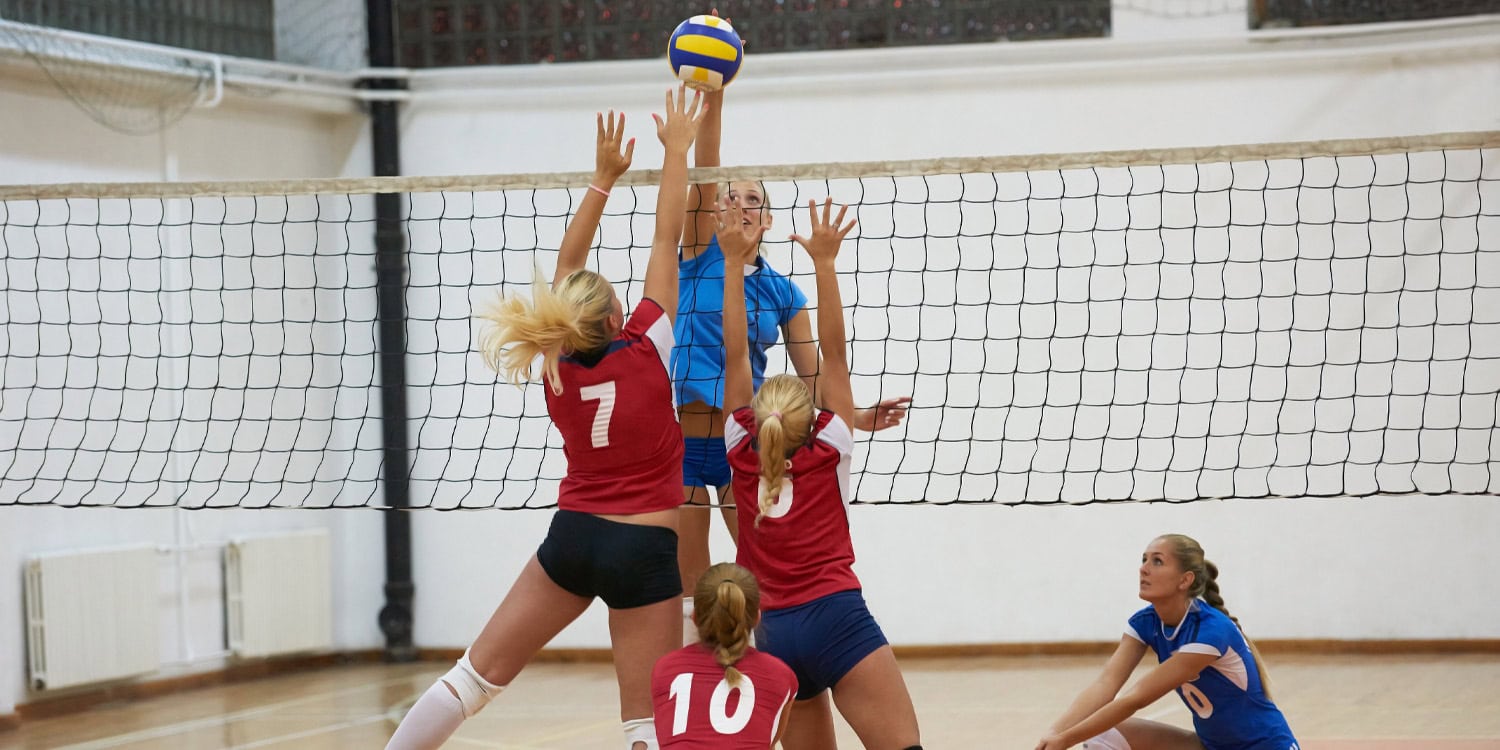New research published in Sociology of Sport suggests that the rhetoric of the “save women’s sports” movement may reflect ideological motivations rather than a genuine commitment to advancing opportunities for female athletes. Using data collected between 2018 and 2019, researchers found that opposition to transgender athletes’ rights are associated with beliefs about women’s physical appearance, negative attitudes toward female athletes, and homophobic views.
The researchers were motivated to conducted the new study by the growing public debate over transgender rights in sports, particularly as the issue has become increasingly politicized. Sports often reflect and shape broader cultural values, and examining public opinion on sports-related issues provides insight into societal attitudes about gender, identity, and fairness.
“As sport sociologists, we scrutinize how sports continually both reflect and contribute to broader aspects of society in a variety of different ways. Correspondingly, public opinions about sports-related issues that tap cultural values offer insight into how people are processing those issues and related values,” explained study author Chris Knoester, a professor of sociology at Ohio State University and chair of research for the OSU Sports and Society Initiative.
“Understanding the factors that shape public opinions can push leaders to make changes or create policies that are responsive to people’s beliefs and how they come to them. Altogether, studying public opinions about trans* (e.g., transgender, intersex, nonbinary) athlete rights allows for improved understandings of the extent to which and reasons for why members of the public criticize or advocate for trans* people in sports and society, want to see changes in sport and society policies and interactions, and are recognizing meanings and values associated with sex, gender, and sexuality in sports and society.”
“Although recognition of these processes led to the design of the National Sports and Society Survey, a number of years ago, we were further motivated to conduct research on trans* athlete rights in sports in the wake of the disproportionate targeting of trans* people in sports and society for criticism and abuse in recent years, related policy initiatives that mostly sought to restrict trans* rights but also sometimes sought to expand them, increased understandings and debates about the meanings of sex, gender, and sexuality in sports and society, the politicization of these issues, and apparent corresponding changes in public opinions about trans* athlete rights, especially.”
“One specific motivating interest, and perhaps outcome of this research, is a better understanding of factors undergirding and driving the purported ‘Save Women’s Sports Movement,’” added co-author Kirsten Hextrum, an assistant professor at Oregon State University and author of Special Admission: How College Athletic Recruitment Favors White Suburban Athletes.
“We were, and remain curious about, whether this political movement supports equitable policies and outcomes for girls and women’s sports. Based on our broader public opinion research, we see relationships between anti-trans* views and orthodox gender beliefs in sport—beliefs that may lead to policies that restrict and contain girls and women’s sports into subordinate athletic opportunities. In these ways, our research indicates these movements may not be in the best interest of girls and women’s athletic opportunities.”
The study utilized data from the National Sports and Society Survey (NSASS), conducted between 2018 and 2019. The NSASS collected responses from a large national sample of 3,993 adults in the United States. Participants were drawn from the American Population Panel, a pool managed by the Center for Human Resource Research, which invited individuals aged 21–65 to participate in exchange for compensation. The survey asked respondents to share their opinions on a range of topics related to sports, gender, and sexuality.
The researchers were particularly interested in whether opposition to transgender athletes’ rights and support for sex testing in sports among U.S. adults stemmed from genuine support for women’s sports or was more influenced by adherence to traditional gender norms, idealized views of women’s physical appearances, and homophobic attitudes.
“Given the timing of the National Sports and Society Survey, we looked for empirical evidence related to these questions with data pre-dating President Biden’s executive order about the meaning of sex discrimination and how it pertains to sex categorizations, gender identities, and sexual orientations, the first state-level ban on trans* athletes in 2020, and the recent politicization of anti-trans* sentiments,” Knoester said.
“In our analysis, we also accounted for effects related to beliefs about inherent male athletic supremacy, self-identified conservatism, political party affiliations, and other ideological, social structure, and social group affiliation—all relevant factors identified in previous research.”
The researchers found that respondents who viewed female athletes as less deserving of attention, support, and media coverage were more likely to oppose transgender inclusion in sports. For example, individuals who disagreed with statements like “Women’s sports deserve the same amount of media coverage as men’s sports” were significantly less likely to support transgender athletes’ rights.
The researchers also found that adherence to traditional standards of femininity—such as prioritizing thinness and attractiveness—was a strong predictor of opposition to transgender athlete inclusion. For instance, respondents who endorsed the idea that women should be thin or that women’s muscles were less attractive were less supportive of transgender athletes competing in alignment with their gender identity.
Similarly, those who agreed with statements like “Female athletes will never be as good as male athletes” were more likely to oppose allowing transgender athletes to compete according to their gender identity and to support sex testing.
Negative attitudes toward homosexuality were another powerful predictor of opposition to transgender athletes’ rights. Participants who expressed homophobic views, such as agreeing with statements like “I would be disappointed if I found out my child was homosexual,” were significantly more likely to support sex testing and oppose transgender inclusion.
According to the researchers, the findings suggest that opposition to transgender inclusion often reflects efforts to uphold traditional gender norms and maintain the existing gender order rather than a genuine commitment to advancing women’s sports.
“We found that public opinions about trans* athletes’ rights—including perceptions of the need for sex testing in sports—are tied to beliefs about wanting to support, promote, and watch girls and women playing sports, traditional views of women’s idealized physical appearances, and homophobia,” Knoester told PsyPost.
“Apparently, U.S. adults have been more likely to develop their more negative attitudes about trans* athlete rights based on more strongly held views that female athletes are undeserving of being supported, watched, and promoted—not because of stronger inclinations to endorse, support, and become immersed in female sport activities. In fact, more negative attitudes toward trans* athlete rights also seem to stem from more traditional views of women’s idealized physical appearances and homophobia.”
“Overall, our research suggests that purporting to save women’s sports is more of a (gender) ideological project and political strategy than a concerned and concerted effort to support, promote, and enable further watching of girls and women playing sports.”
While the study offers important insights, there are some caveats to consider. The reliance on self-reported data from a non-randomly selected sample means the findings may not fully capture the diversity of public opinion in the United States. Additionally, the survey collected data at a single point in time, limiting the ability to evaluate how opinions may have shifted in response to recent social and political developments.
As Knoester noted, “our study relied upon survey responses from people who volunteered to participate in the study and were not randomly selected. Relatedly, respondents were not representative of the U.S., demographically. They were also not given an opportunity to explain the nuances of their beliefs and offer in-depth responses. Moreover, since the survey responses stemmed from one point in time, we were unable to assess changes in people’s views and more rigorously test assumptions about causal flow.”
“Future research should work to address these study limitations. In fact, we are currently working to analyze follow-up survey information provided by nearly half of the original respondents that will allow us to assess changes in public opinions about trans* athlete rights over the past six years.”
The study, “Saving Women’s Sports? The Ideological Underpinnings of U.S. Public Opinions About Trans* Athlete Rights and Sex Testing, Before Widespread Politicization,” was published January 9, 2025.




